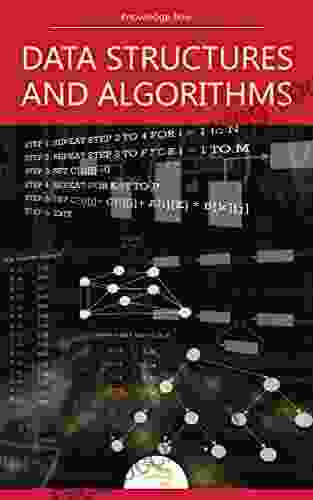Unveiling the Intellectual Legacy of John Bates Clark and Thorstein Veblen: A Comprehensive Analysis

The field of economics has witnessed a profound transformation over the centuries, with towering figures shaping its trajectory and leaving an enduring mark. Among them, John Bates Clark and Thorstein Veblen emerged as intellectual pioneers, whose ideas continue to resonate in contemporary economic discourse. This comprehensive analysis aims to explore the multifaceted contributions of Clark and Veblen, unraveling the depths of their economic theories, social critiques, and lasting influence.
John Bates Clark: Marginalism and the Neoclassical Revolution
John Bates Clark (1847-1938) played a pivotal role in the emergence of neoclassical economics, advocating for the marginalist revolution that redefined the discipline. His seminal work, "The Distribution of Wealth," published in 1899, established the marginal productivity theory of distribution, asserting that the value of each factor of production (land, labor, and capital) is determined by its marginal contribution to output.
5 out of 5
| Language | : | English |
| File size | : | 1118 KB |
| Text-to-Speech | : | Enabled |
| Screen Reader | : | Supported |
| Enhanced typesetting | : | Enabled |
| Word Wise | : | Enabled |
| Print length | : | 161 pages |
Clark's unwavering belief in market forces and the invisible hand of competition led him to champion laissez-faire economic policies, emphasizing the self-correcting mechanisms of the free market. His emphasis on individualism and the rationality of economic agents formed the bedrock of neoclassical economic thought.
Thorstein Veblen: Institutionalism and Social Theory
Thorstein Veblen (1857-1929),a contemporary of Clark, took a markedly different approach to economics. Rejecting the assumptions of neoclassical theory, he developed institutional economics, focusing on the role of social institutions, technological change, and cultural norms in economic life.
Veblen's seminal work, "The Theory of the Leisure Class," published in 1899, offered a scathing critique of the conspicuous consumption and social stratification that characterized modern capitalism. He argued that the wealthy engage in conspicuous consumption not for utility but for social status, creating a society marked by inequality and social waste.
Veblen's insights into economic behavior, technological innovation, and the influence of culture proved groundbreaking, challenging the prevailing economic orthodoxies of his time.
Marginalism vs. Institutionalism: A Comparative Analysis
Despite their contrasting approaches, Clark and Veblen shared common ground in their commitment to scientific rigor and the pursuit of economic understanding. However, their perspectives diverged significantly, leading to a fundamental divide within the field of economics.
Clark espoused a deductive approach, relying on abstract models and mathematical formulations to derive economic laws. Veblen, on the other hand, embraced an inductive approach, emphasizing empirical research and historical analysis to uncover the underlying mechanisms of economic behavior.
While Clark's marginalism focused on optimizing individual choices and market equilibrium, Veblen's institutionalism highlighted the social and cultural dimensions of economic processes. Clark's analysis centered on the efficient allocation of resources, while Veblen delved into the dynamics of economic development and social change.
The Enduring Legacy of Clark and Veblen
The groundbreaking ideas of John Bates Clark and Thorstein Veblen continue to shape economic thought and social analysis. Clark's marginalist approach laid the foundation for mainstream economic theory, influencing fields such as microeconomics, welfare economics, and public finance.
Veblen's institutionalist perspective, with its focus on social institutions and cultural norms, opened up new avenues of research and inspired scholars in economics, sociology, and anthropology. His critique of consumerism and social stratification remains relevant in understanding the complexities of modern societies.
Contemporary Applications and Relevance
The ideas of Clark and Veblen continue to resonate in a contemporary context, offering valuable insights for economic policy and social analysis.
Clark's emphasis on market efficiency and competition remains a cornerstone of free market economics, while his insights into the distribution of income inform discussions on income inequality and social welfare.
Veblen's critique of consumer culture and the influence of social institutions resonates strongly in an era characterized by conspicuous consumption, technological disruption, and rising social inequality. His work highlights the importance of understanding the social and cultural factors that shape economic behavior and outcomes.
The intellectual legacy of John Bates Clark and Thorstein Veblen is marked by groundbreaking theories, enduring contributions, and lasting significance. Their contrasting approaches, marginalism and institutionalism, have profoundly shaped economic thought and continue to inspire research and policy debates.
By delving into the depths of their ideas, we gain invaluable insights into the complexities of economic life, the evolution of societies, and the challenges of our modern world. The enduring relevance of Clark and Veblen's work testifies to their visionary insights and the enduring power of their intellectual contributions.
5 out of 5
| Language | : | English |
| File size | : | 1118 KB |
| Text-to-Speech | : | Enabled |
| Screen Reader | : | Supported |
| Enhanced typesetting | : | Enabled |
| Word Wise | : | Enabled |
| Print length | : | 161 pages |
Do you want to contribute by writing guest posts on this blog?
Please contact us and send us a resume of previous articles that you have written.
 Book
Book Novel
Novel Page
Page Chapter
Chapter Text
Text Story
Story Genre
Genre Reader
Reader Library
Library Paperback
Paperback E-book
E-book Magazine
Magazine Newspaper
Newspaper Paragraph
Paragraph Sentence
Sentence Bookmark
Bookmark Shelf
Shelf Glossary
Glossary Bibliography
Bibliography Foreword
Foreword Preface
Preface Synopsis
Synopsis Annotation
Annotation Footnote
Footnote Manuscript
Manuscript Scroll
Scroll Codex
Codex Tome
Tome Bestseller
Bestseller Classics
Classics Library card
Library card Narrative
Narrative Biography
Biography Autobiography
Autobiography Memoir
Memoir Reference
Reference Encyclopedia
Encyclopedia Glenn Deir
Glenn Deir Grant J Ryan
Grant J Ryan Richard Fenton
Richard Fenton Gwen Hayes
Gwen Hayes Giovanna Fletcher
Giovanna Fletcher Rachel Jepson Wolf
Rachel Jepson Wolf Tedi Ticic
Tedi Ticic Tom C Mckenney
Tom C Mckenney Hannah Lucinda Smith
Hannah Lucinda Smith T L Lowery
T L Lowery Hadi Tahir
Hadi Tahir Zachary Willey
Zachary Willey James Romm
James Romm Greg Creed
Greg Creed Guy Harrison
Guy Harrison John Hall
John Hall Hal Erickson
Hal Erickson Raquel Cepeda
Raquel Cepeda Greg Steinmetz
Greg Steinmetz Glenn Dakin
Glenn Dakin
Light bulbAdvertise smarter! Our strategic ad space ensures maximum exposure. Reserve your spot today!
 Abe MitchellFollow ·7.6k
Abe MitchellFollow ·7.6k Aldous HuxleyFollow ·6.8k
Aldous HuxleyFollow ·6.8k Junichiro TanizakiFollow ·11.2k
Junichiro TanizakiFollow ·11.2k Dwight BlairFollow ·8.3k
Dwight BlairFollow ·8.3k Jerry WardFollow ·11.4k
Jerry WardFollow ·11.4k John ParkerFollow ·15.6k
John ParkerFollow ·15.6k Billy FosterFollow ·17.5k
Billy FosterFollow ·17.5k Walt WhitmanFollow ·13.5k
Walt WhitmanFollow ·13.5k

 Brady Mitchell
Brady MitchellMaster IELTS Speaking: The Ultimate Guide to Success
Kickstart Your IELTS...

 Branden Simmons
Branden SimmonsBack Spin: A Thrilling Myron Bolitar Novel
Get ready to embark on a...

 Marc Foster
Marc FosterData Structures and Algorithms: A Comprehensive Guide to...
In the ever-evolving...

 Jeff Foster
Jeff FosterUnveiling the Basics of Microbiology: A Comprehensive...
The world of...

 J.D. Salinger
J.D. SalingerHold Tight Suspense Thriller: A Gripping Page-Turner That...
Are you ready for a suspense thriller that...
5 out of 5
| Language | : | English |
| File size | : | 1118 KB |
| Text-to-Speech | : | Enabled |
| Screen Reader | : | Supported |
| Enhanced typesetting | : | Enabled |
| Word Wise | : | Enabled |
| Print length | : | 161 pages |














